Search Definitions
Browse Content (p. 33)

Definition
Typhon
Typhon (also Typheus) is the largest and most dreadful monster in Greek mythology. He was tall, with a brutish face, and had wings, countless snakeheads in place of hands, and a lower body made up of coiled serpents. His eyes flashed fire...
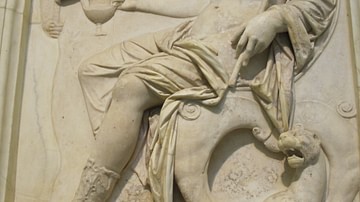
Definition
Bacchus
Bacchus was the god of wine and revelry in Roman mythology. Considered the most versatile and elusive of the gods, with a Greek equivalent in Dionysus, Bacchus is frequently associated with the Roman god of wine Liber Pater. He brought joy...
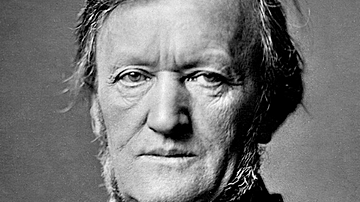
Definition
Richard Wagner
Richard Wagner (1813-1883) was a German composer of Romantic music most famous for his epic operas like The Ring, Tannhäuser, and Tristan and Isolde. Wagner was concerned throughout his career with the theme of redemption through love and...
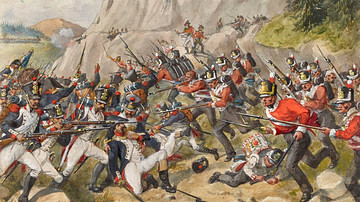
Definition
Peninsular War
The Peninsular War (1807-1814), also known as the War of Spanish Independence, was a major conflict of the Napoleonic Wars (1803-1815) that was waged in the Iberian Peninsula by Portugal, Spain, and the United Kingdom against the invading...
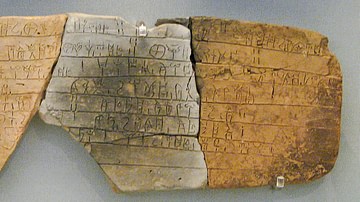
Definition
Linear B Script
Linear B script was the writing system of the Mycenaean civilization of the Bronze Age Mediterranean. The syllabic script was used to write Mycenaean Greek from c. 1500 to c. 1200 BCE. It was deciphered by Michael Ventris in 1952, and so...

Definition
Continental System
The Continental System was a major blockade of British trade imposed by French Emperor Napoleon I from 21 November 1806 to 11 April 1814. It was designed to cripple the British economy, thereby forcing Britain out of the Napoleonic Wars (1803-1815...

Definition
Linear A Script
Linear A script was used by the Minoan civilization centred on Crete during the Bronze Age. Used from around 1850 to around 1450 BCE, the script has never been deciphered. Artefacts bearing Linear A script, most commonly clay tablets, have...

Definition
Antikythera Mechanism
The Antikythera mechanism (also known as the Antikythera Device), dated to the late 2nd century/early 1st century BCE (roughly 205-60 BCE) is understood as the world's first analog computer, created to accurately calculate the position of...

Definition
Greek Alphabet
The Greek Alphabet developed from the Phoenician script at some point around the 8th century BCE. The earlier Mycenaean Linear B script, used primarily for lists and inventories, had been lost during the Greek Dark Age, and the technology...
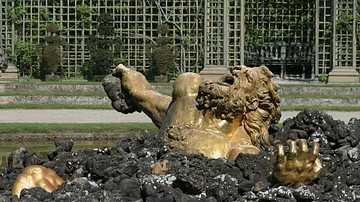
Definition
Giants
In Greek mythology, the Giants (Gigantes) are an aggressive race of creatures who were born from Gaia (the Earth) after drops of Uranus' blood fell on the Earth after he was castrated. The Giants had great strength and were fearsome to look...